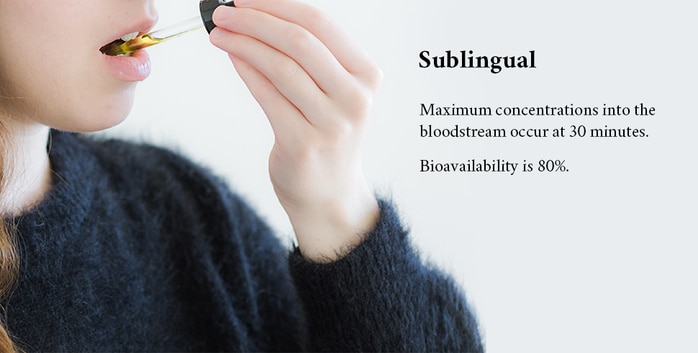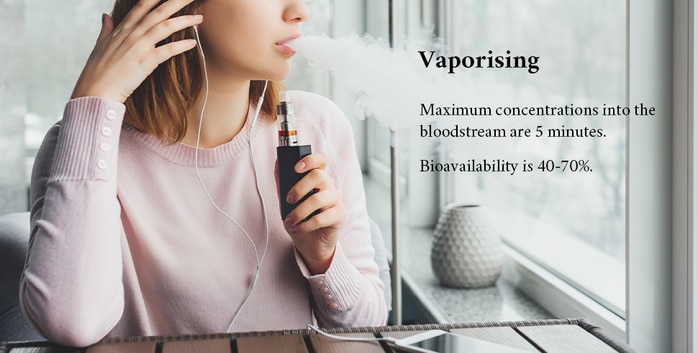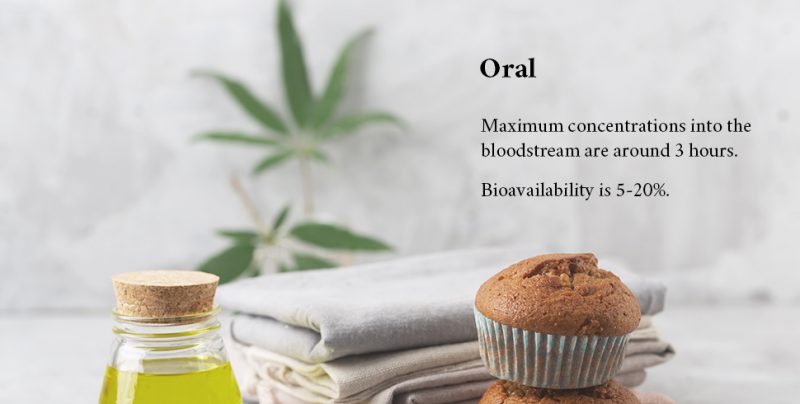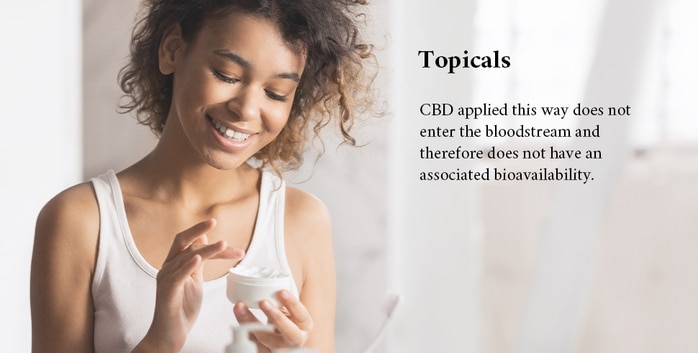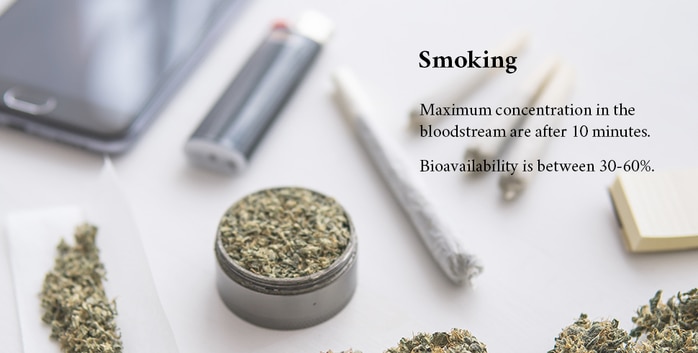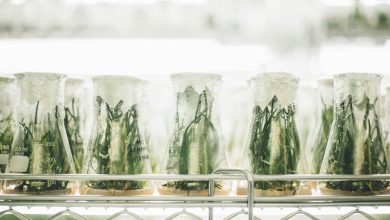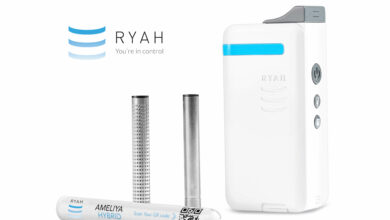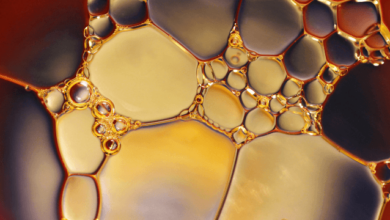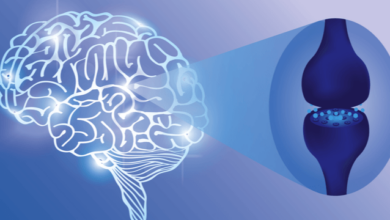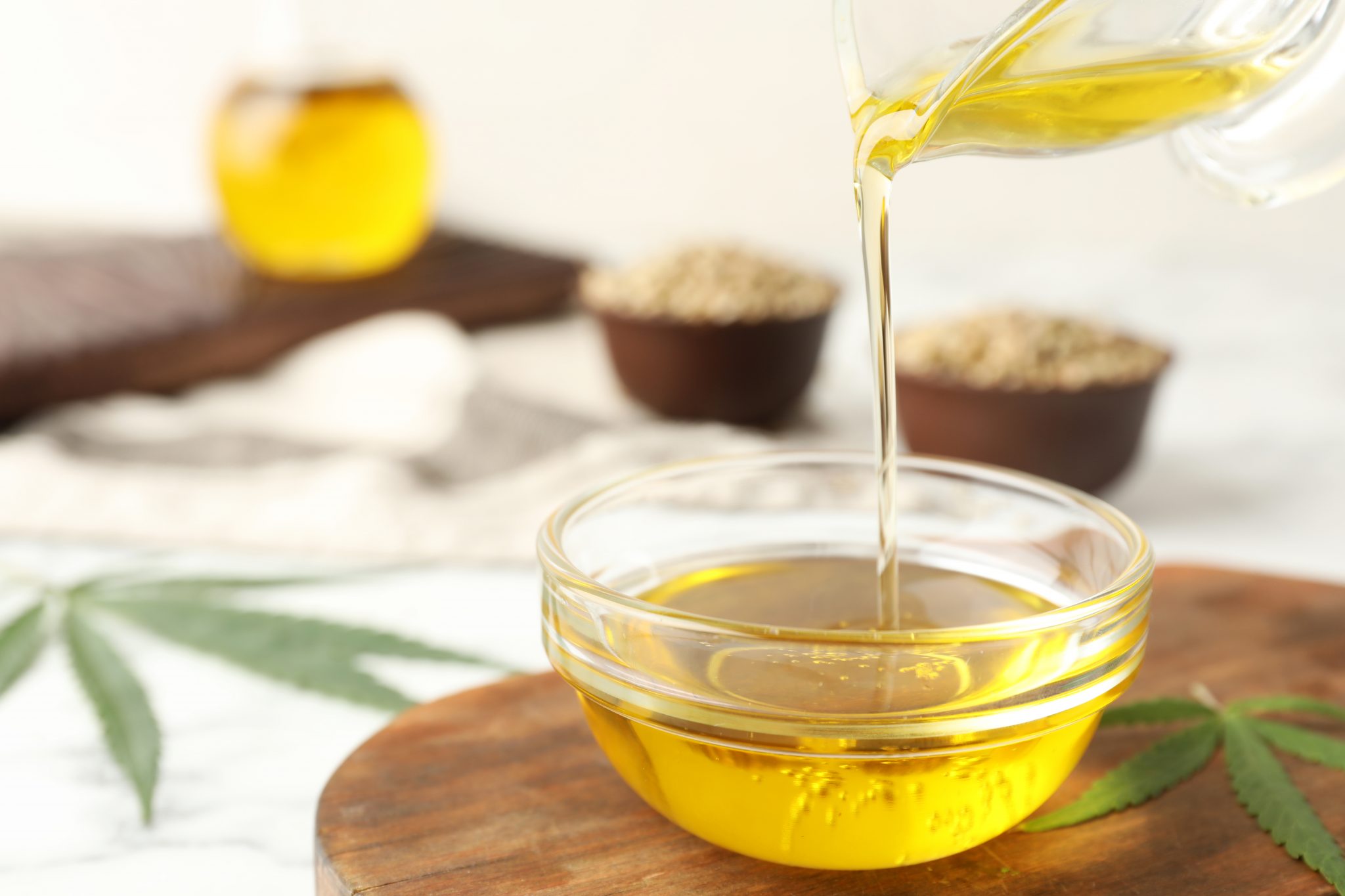
Finding your optimal CBD oil dosage for is important. Whether you are vaping CBD, taking CBD tinctures, consuming it for chronic sciatica back pain or to lower your blood pressure, the serving size should be a very important consideration. Even if you are just using cannabidiol as a supplement to your diet.
We've put together this CBD dosage guide to help you navigate this growing topic. Jump to a specific part using the links below.
Table of Contents
The main considerations for CBD Dosage
If you’ve recently decided to join the CBD revolution, the first questions you may be wondering are…
- What CBD product should I purchase?
- How much of it should I take and how regularly should I take it?
- What is the optimum amount for my specific medical condition?
- And, are there any side effects if I consume too much?
- How much CBD oil should I take UK?
- What strength CBD oil should I use UK?
- What is CBD oil dosage for anxiety?
- What is the CBD dosage for pain?
- What are the best places to buy CBD in the UK?
CBD Oil Dosage Calculator
Different dosage for different products
Some information you may not have considered, but should definitely take into account is the amount of cannabinoids within your CBD products. For example, two different CBD tinctures from two different CBD companies may cost the same, but one may have much more of the active ingredient, cannabidiol, than the other.
The way you consume cannabidiol affects the dosage
Also, you may not have considered that two different ways of consuming CBD products, such as vaping CBD vs. CBD tinctures may hit different pathways within the body, and therefore absorb into the bloodstream in different amounts (called the bioavailability).
So, the serving size for different methods of consumption may vary based upon the bioavailability of cannabidiol for that method.
How much CBD should I take for chronic pain? – CBD dosage for pain
The current advice is to consume regular doses of the same amount of CBD oil three times per day (i.e. 3 x 30mg), to apply topicals to the area of pain for localised relief and to top of with a vape if the pain levels are too high.
However it should be noted that there is no current recommended cbd oil dosage for pain, mainly because defining the pain scale on a quantifiable level is difficult because we all perceive pain differently.
How much CBD should I take for anxiety? – CBD oil for anxiety dosage uk
The recommended threshold amount for reduction of symptoms of anxiety is believed to be much lower than this, at around 40-80mg daily depending upon body weight and metabolism. The general advice is to consume a set CBD dose in the morning and evening amounting to your daily dose and then to top up as necessary by using a vape pen for a more immediate effect if suffering heavily.
If the daily cbd oil dose set isn’t effective it should be increased upon in 10mg increments each week until the effects are noticed.
CBD dosage for PTSD
The number of preventable cases of post-traumatic stress disorder that exist within the world is astounding. The symptoms of PTSD are incredibly painful for the sufferers, taking their toll on both their physical and mental health which is why many are turning to CBD.
When a traumatic event occurs in someone’s life, it can alter brain chemistry in such a way as to mentally scar them, causing major anxiety issues. Major sufferers of PTSD tend to be ex-soldiers (veterans) who struggle with PTSD in addition to anxiety and depression.
PTSD compared to other mental health disorders is where CBD has shown lots of promise. Two very recent studies in 2018 and 2019 have shown heavy links with the use of CBD and the reduction in the symptoms of PTSD.
How much CBD should I take for PTSD?
Relief of symptoms of PTSD has been shown with doses from 15-50mg. A major interest in these studies mentioned above, has been to pinpoint a recommended dosage of CBD for the reduction of symptoms, with a contained smaller dosage believed to reduce anxiety better than overloading the patient with higher doses.
CBD dosage for epilepsy
CBD is confirmed to have anti-spasticity effects and consequently, it reduces the number of seizures suffered.
There are official guidelines on the amount of cannabidiol to consume in order to reduce epileptic seizures.
How much CBD oil should I take for epilepsy?
The starting cbd dosage is 2.5 mg per kg of body weight taken twice daily. If this dosage is easily tolerated then it can move up to 5 mg per kg of body weight taken twice daily. So, for the average person at 60kg, this would be a daily dosage of 600mg of CBD.
Further recommendations show that the amount can be doubled again to doses of up to a maximum of 1,200mg daily and this has the potential to reduce the number of seizures further, but regularly dosing at this level could cause liver issues, and the amount of CBD taken over time would need to be reduced if the liver was unable to process it.
Can you overdose on CBD?
Studies have shown that humans can take up to 1,500mg daily without any immediate adverse side effects, according to two clinical studies conducted in 2011 and 2017. This is the amount of CBD contained within the average bottle of CBD.
However, consuming that amount over a prolonged period could potentially cause the liver to overwork and subsequently be damaged. None of the dosage amounts peak anywhere near this amount though so that shouldn’t be a concern.
Consuming large amounts of CBD in one go could also affect other pharmaceutical drugs prescribed. So, always consult a medical professional before self-medicating if you are currently prescribed any medication.
The correct CBD dosage can depend on the person
In addition to all of this, it's worth noting that one person consuming a certain amount of CBD will respond differently to another person consuming the same amount. There isn’t a one-size-fits-all dosage guide for all people and all conditions.
However, there are recommended guidelines and serving sizes for certain medical conditions that can be followed.
Whether you source your products from industrial hemp, or whether you are an avid marijuana enthusiast looking to gauge how much you should be consuming per day for certain effects. This CBD oil dosage guide will provide you with all your serving size questions and more.
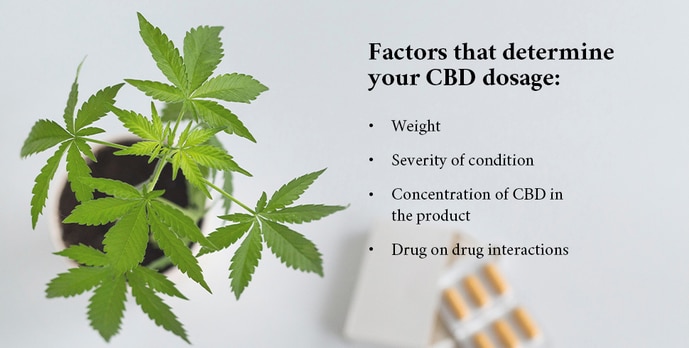
Why is getting the correct dosage of CBD important?
Figuring out the optimum amount of CBD to consume is of the utmost importance for the consumer, with the general advice given being to always start small and gradually increase your dose until the desired effects are met.
Effective & cost-effective amounts
This is initially important from a cost-saving perspective. If the benefits of CBD are felt and your symptoms are alleviated after consuming a dosage of 20mg of CBD, but you start by consuming double that amount of CBD. You are essentially wasting 50% of your CBD product and therefore 50% of your money.
The main concern for getting the dosage correct should relate to making the cannabidiol as effective as possible. This is because the effects of CBD don’t work linearly. For example, if you suffer from anxiety or depression, a smaller dose of CBD may work better than a larger dose to help alleviate your symptoms, because CBD can act as a mild stimulant in lower doses but as a mild sedative in higher doses.
Furthermore, clinical studies on the amount of CBD to take for specific purposes have shown that threshold dosages exist to relieve specific symptoms, such as relief from PTSD.
In some of these studies, it has been shown that if you go way over the threshold amount, the effectiveness of reducing these symptoms can in fact reduce. So even though CBD has no overdose limit, it isn’t a case of just taking lots to make sure you have taken enough.
How CBD works with the body?
In order to fully understand how the benefits of CBD are felt by the body and to subsequently decide what dosage is required, it helps to have an understanding of how cannabidiol interacts and affects different areas and therefore different medical conditions.
CBD that enters the bloodstream will be transported all around the body. CBD even has the ability to pass the blood-brain barrier, meaning that once in the bloodstream it can enter the brain to elicit any effects there.
Cannabidiol & the bloodstream
This is especially beneficial for autoimmune diseases that occur within the brain whose symptoms are alleviated by anti-inflammatory drugs called NSAIDs, which typically struggle to cross the blood-brain barrier in large doses. CBD can evoke a similar, if not stronger anti-inflammatory response than most of these NSAIDs and can freely cross the blood-brain barrier.
Once in the bloodstream, CBD can interact with the cells of your body in many ways. More specifically CBD can interact with a network of receptors called cannabinoid receptors that sit on the surface of your cells. These receptors are present in your brain, spinal cord, on your skin and muscle cells as well as throughout your organs. They make up a whole network or system, called the endocannabinoid system.
CBD can help the skin more then most natural compounds and is extremely effective with CBD cream for acne becoming very popular.
The endocannabinoid system
The endocannabinoid system has receptors which are associated with regulating sleep, appetite, hormone response, pain and anxiety amongst a range of other responses.
The receptors of the endocannabinoid receptors have different shapes and sizes which respond to different cannabinoids from the cannabis plant in different ways. Out of these different shapes and sizes, there are two prominent types, called CB1 and CB2.
CB1 receptors exist primarily within the central nervous system, so within the brain and spinal cord. They are mainly associated with effects relating to sleep, memory, anxiety and depression.
CB2 receptors exist primarily outside of the central nervous system, so the organs and tissues. Here the effects of cannabinoids on these receptors are mainly associated with inflammation and immune response.
The difference in receptors explains why CBD is associated with helping the symptoms of multiple different medical conditions, from those which are psychological such as anxiety, to those which are physical such as epilepsy.
In addition, because CBD is such a strong anti-inflammatory it explains why CBD has multiple different associated conditions where it seems to help. Inflammation is at the root of most autoimmune conditions and if it can effectively be reduced then the quality of life of the patients suffering can be increased.
What are the different ways to consume CBD?
CBD can be consumed in multiple different ways, from vaping CBD to CBD tinctures. These different methods all have different timescales to which they enter the bloodstream to cause their effect, as well as having a different bioavailability (total amount which enters the bloodstream).
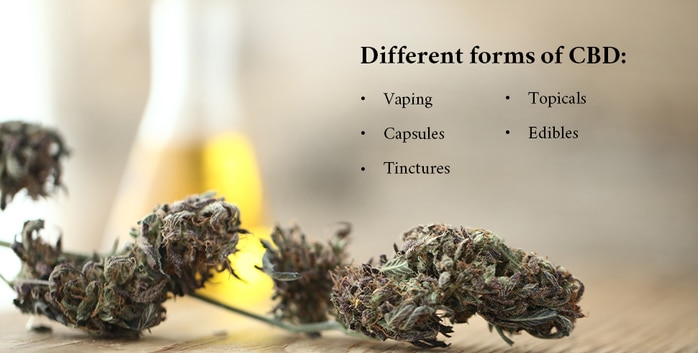
Different conditions need different doses & delivery methods
Different medical conditions require different levels of response, such as epilepsy sufferers requiring an immediate dosage of CBD to instantly calm a seizure or sufferers of depression requiring a longer-lasting, regular dose of CBD over a period of time. This means that the different ways of consuming CBD combined with their bioavailabilities lend themselves more to different conditions.
The way in which you consume CBD is also important depending on the specific medical condition you want to consume it for. Because CBD can be applied directly to the skin, it can be used for localised relief for certain skin conditions, such as psoriasis or acne. However, most medical conditions require for CBD to enter the bloodstream, which means it must be inhaled or ingested in some way.
So, for the specific condition, it is important that the CBD is being consumed in the correct way. From the most common to the least common, the ways in which CBD can be consumed and their associated bioavailabilities are:
1. Sublingual
Sublingual means to place under the tongue. CBD available in this form comes as CBD oil or CBD tinctures. CBD oil is where cannabidiol has been extracted from the plant and placed into a carrier oil. A CBD tincture is where cannabidiol has been extracted from the plant into an alcohol solution.
To have the maximum effect, CBD taken sublingually must be allowed the time to absorb into the bloodstream from under the tongue. This means it should be held there for up to 10 minutes before being swallowed. Absorption of CBD occurs much quicker and more effectively if taken after you have just eaten and swishing around under the tongue and the back of the bottom teeth will increase bioavailability.
Maximum concentrations into the bloodstream occur at 30 minutes. Bioavailability is 80%.
Overall, sublingually is an effective and easy method of consuming CBD without the need to purchase any equipment prior to taking it.
2. Vaporising
Vaporising CBD or vaping CBD means to heat up a CBD product to point in which the CBD and/or other cannabinoids present leave the cannabis product and enter into a gas/vapour which can then be inhaled. The CBD products which can be vaped are E-liquids, dabs, cannabis buds.
When vaping CBD, after inhalation it immediately enters the bloodstream where it takes immediate effect. It is by far the quickest way to consume CBD and the peak bloodstream levels are in 5 minutes after inhalation.
Vaping CBD is an effective method for making cannabidiol enter the bloodstream. This can be enhanced further by learning proper vaping techniques and methods to maximise the cannabinoid absorption into the vapour. Investing in a good quality vaporizer might seem like a high initial outlay, but it can save money in the long run via increasing the effectiveness of the CBD.
Maximum concentrations into the bloodstream are 5 minutes. Bioavailability is 40-70%.
3. Oral
Consuming CBD orally means to ingest CBD into the digestive tract. CBD available in oral form comes as CBD oil, tinctures, edibles, gummies, capsules and powder. CBD oil is cannabidiol suspended in a carrier oil. CBD tinctures are cannabidiol suspended in alcohol. Gummies and edibles are sweets and food made with CBD and CBD powder is a concentrated, crystalline version of CBD.
CBD that is ingested enters the digestive tract. Here it will be absorbed into the bloodstream. Most of the CBD that enters the body this way will reach the stomach and the liver and be destroyed before it has a chance to be absorbed into the bloodstream.
CBD taken orally also has a higher chance of interfering with the processing of some pharmaceutical medication because it competes with them to be metabolised in the liver.
CBD taken orally has the slowest rate of absorption but this can be increased by consuming after a meal with healthy fats.
Canndid CBD Gummies

- CBD type: Full-spectrum
- CBD potency: 500mg per bottle
- COA: Available
Price: £-££
CBD Gummies from Canndid - a brilliant way to incorporate CBD into your diet! These CBD Gummies can easily be taken alongside your daily supplements for the most efficient consumption possible. This means it’s easily added to your daily or nightly routine.
If you are looking to dip your toe into CBD products for the first time well then, CBD Gummies may well be the best option.
Maximum concentrations into the bloodstream are around 3 hours on average. Bioavailability is 5-20%.
4. Topicals
Topical CBD is where cannabidiol has been extracted and placed into a cream, lotion or balm for use on the skin. CBD applied this way does not enter the bloodstream and therefore does not have an associated bioavailability.
Skin cells have cannabinoid receptors which can be directly stimulated. Topicals are used for localised treatments such as muscle aches, sites of inflammation, pain receptors or for skin conditions.
Used in beauty treatments as well as for medical purposes. Topical CBD used to treat chronic medical conditions are advised to be combined with a method of ingesting CBD.
5. Smoking
Smoking CBD is where a CBD product is heated up to the point where it combusts and the smoke produced is then inhaled. CBD products which can be smoked are CBD or hemp buds.
The legal status of CBD buds strongly differs from place to place due to its similarity to marijuana. So, the availability of CBD buds may limit people from smoking CBD.
Any product that is burned and inhaled (i.e. cannabis and cigarettes) carries the risk of being causing cancer.
Maximum concentration in the bloodstream are after 10 minutes. Bioavailability is between 30-60%.
Also check: Best Grinders in UK
CBD Dose for different medical conditions
CBD has associated therapeutic uses for multiple different medical conditions. Millions of people worldwide are claiming the perceived benefits of CBD, even if clinical trials haven’t confirmed it yet. Research scientists are currently working on confirming these anecdotal effects of CBD.
Some of the conditions which CBD is in clinical trials for are: –
- Cancer
- Anxiety
- Sleep
- Depression
- Chronic pain
- Post-traumatic stress disorder (PTSD)
- Epilepsy
- Multiple sclerosis (MS)
The effectiveness of CBD has been so great that some people have stopped pharmaceutical treatment altogether. But, how come CBD is so effective for multiple different conditions?
In addition to the endocannabinoid system, CBD also interacts with: –
- Serotonin receptors
- Dopamine receptors
- Gene activation receptors
- Different Enzymes
CBD affects these different receptors because of its ability to pass the blood-brain barrier as well as being able to act as a neurotransmitter, which is a type of chemical messenger. CBD’s ability to act as a neurotransmitter for the above receptors explains why it can elicit a range of different responses in different people.
Because different receptors exist in different amounts within the body and because they also require different threshold amounts to be activated. It explains why different medical conditions require different doses.
1. CBD oil cancer dosage
Although CBD has been linked with the treatment of cancer, the only related clinical studies conducted refer only to cannabis and cancer and the results so far have been mixed. CBD has shown more promise in increasing the quality of life of cancer patients going through cancer treatment by helping to manage the symptoms of cancer or manage the symptoms associated with cancer treatment i.e. chemotherapy.
Such side effects which CBD has shown promise to help is with regards to pain management and also the nausea associated from cancer-treating medication.
The medical advice given from the National Cancer Institute on using CBD for cancer is that cannabinoids have shown promise in appetite stimulation, management of pain symptoms, reduction of anxiety, increase in overall sleep and to control chemotherapy induced nausea and sickness. The belief is that CBD and other cannabinoids may help these symptoms and have a place in medicine.
The recommended CBD dose for cancer
There are unfortunately no current studies on the use of CBD for the treatment of cancer. The research is in its infancy. However, this study in 2016 showed that cannabinoids showed promise in inhibiting the growth of some types of cancer. Sleep and stress are known contributors to illness and where CBD can often help immediately is with aiding a good nights sleep and reducing anxiety. Many believe full spectrum CBD with THC included is the best type of CBD but in most countries you will need this to to be prescribed by your doctor.
The study does not however that because cannabis affects the immune system, it could have the potential for allowing tumours to grow unchecked so more study would be required. The need for more research in this area is evident.
There is currently no official recommended guidelines for the amount of CBD to consume for cancer treatment. However, there are recommended amounts for the management of the symptoms.
CBD is recommended specifically for symptoms of anxiety, pain and sleep-related issues for issues associated with cancer treatment and chemotherapy medication, and these will be discussed in later headings.
2. CBD oil dosage for anxiety
The number of people using CBD oil for anxiety far surpasses any other reason people consume it within the UK, beating chronic pain in second place. CBD has seemingly become a go-to cure for symptoms of anxiety for many people, replacing pharmaceutical anti-anxiety medication due to be being perceived as a natural alternative.
The stresses of day to day life diminish mental health and CBD products seem to be at the top of people’s lists to help.
The evidence of the benefits of CBD for reduction of anxiety from clinical studies are mainly based within laboratory tests on animals. Large scale clinical testing is required before CBD becomes available on prescription, but approximately 200,000 self-medicating with CBD in the UK for a range of anxiety-based disorders speaks volumes.
This 2015 study showed that CBD has promise with acute treatment of conditions like generalized anxiety disorder, panic disorder, social anxiety disorder, obsessive-compulsive disorder, and post-traumatic stress disorder in animals.
A human-based study was conducted in 2011 showed promise for the use of CBD with social anxiety disorder. In this study a single 600mg CBD dosage was given to the participant.
3. CBD dosage for sleep
An estimated 1.5 million people in the UK suffer from a sleep disorder. Sometimes this can be due to chronic pain issues or stress. The self-medication with cannabis has long been a method used in order to relax and medical cannabis in Canada and the USA is often prescribed for sleep related issues. Now people are turning to CBD oil for sleeping better.
This study conducted in 2013 showed that administering CBD to rats increased the total sleep time as well as the amount of REM sleep. The CBD dosage given to the rats was 40mg per kg of body weight. With the average human weighing approximately 60kg would be 3600mg of CBD, which would be extremely excessive and expensive.
CBD is biphasic, which means that in lower doses it is a mild stimulant and in higher doses, it is a mild sedative. Therefore, it is recommended that in order to stimulate the endocannabinoid system enough to help with sleep-related issues, a single dose of CBD oil is required 30 minutes before sleep of around 80-100mg.
4. CBD dosage for depression
CBD has shown promise in helping with depression. It is unknown yet whether CBD helps to cure depression but it has shown that it can help alleviate the symptoms.
The increase in mental health issues within the UK has been on the rise, with the stress of longer working hours being contributed as a major factor.
In addition to the endocannabinoid system, CBD acts on the serotonin receptors. It has been shown that CBD stops the breakdown of anandamide, a chemical messenger associated with sleep, appetite and memory but also of the 5-HT receptor responsible for serotonin.
Serotonin is a chemical which is associated with happiness because it binds to receptors in the brain cells which improves mood and stress control.
This study review in 2018 concludes that CBD helps with multiple medical conditions, but in particular with anxiety and depression by reducing stress and increasing quality of life. It also shows CBD helps with epilepsy, substance abuse and dependence, schizophrenia, social phobia, post-traumatic stress, bipolar disorder, sleep disorders, and Parkinson’s disease.
How much CBD should I take for depression?
The recommended dosage for CBD to help with depression is around 40-80mg daily depending upon body weight and metabolism. The general advice is to consume a set dose of oil in the morning and evening amounting to your daily dose and then to top up as necessary by using a vape pen for a more immediate effect if suffering heavily.
If the daily dosage set isn’t effective it should be increased upon in 10mg increments each week until the effects are noticed.
5. CBD dosage for chronic pain
CBD oil and CBD tinctures are very commonly used to relieve back pain. The benefits of CBD extends to many different medical conditions in which the major symptoms are chronic pain. Chronic pain is also a major symptom from sports-based injuries, which explains why CBD is being endorsed by so many athletes.
Use of CBD for chronic pain won’t cure the reason why the pain exists, it just has the ability to mask the pain. One study from 2012 shows that cannabinoids interact with the endocannabinoid system and glycine receptors which subsequently suppresses the inflammatory response and reduces neuropathic pain.
Other studies have shown that CBD helps reduce chronic pain associated with arthritis without any immediate side effects.
Canndid CBD Tincture

- CBD type: Full-spectrum
- CBD potency: 250 - 1550 mg per bottle
- COA: Available
If you are thinking about buying some CBD oil in an effort to secure a good night's sleep, the Canndid tincture range could be the product for you. There are 3 different tinctures that range from 250mg to 1500mg of cannabidiol.
It also contains many other cannabinoids like CBN, CBDA, CBC, CBG and CBDV.
Conclusion
CBD isn’t a one-size-fits-all substance. The benefits of CBD appear to be far and wide because CBD is so versatile. The sheer amount of CBD products is amazing, from CBD edibles to CBD vapes and more. Each person is different and will respond to different amounts differently depending on the medical conditions.
It is an interesting time for CBD advocates because it feels like all the clinical studies and research are starting to confirm everybody’s thoughts about CBD benefits on how this substance truly can help those in need.
Always ensure you speak to a trusted and trained medical professional before self-medicating with medical cannabis or CBD for any serious condition.


